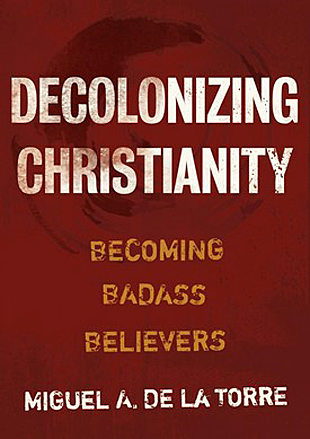A premier social ethicist in the United States today, De La Torre makes an eloquent case against white nationalism and white supremacy. “It is my Latinx community and other marginalized communities to whom I am accountable and to whom I must answer,” he says early on, adding, “This book is for the ethnically and racially disenfranchised. My hope is to humbly suggest how those disenfranchised and I might respond to those who believe they are exalted, when in reality they will be among those demanding entrance to God’s eternal rest only to be rebuffed.”
He pleads with all of us to fight against the white nationalist Christianity that’s been a part of U.S. culture, society, and churches since the Colonies were formed — and which has grown exponentially in power and influence due to four years of a Trump presidency. There are dozens of pages of analysis of the former president and his devastating influence, including an extended look at how Trump’s words, actions, and influence fit the Christian dispensationalist descriptions of an antichrist.
“Decolonizing Christianity is not an attempt to teach white people how to relate to those on their margins so that they can feel peace and serenity. Instead, these pages seek to demonstrate how dispossessed communities have believed the lie of white supremacy,” the author explains. The book achieves this powerfully.
De La Torre wants to uncover institutional racism and the easy collaboration with white supremacy that happens every day — especially by well-meaning people. He explains:
“To describe racism and ethnic discrimination as ignorant feelings of superiority due to skin pigmentation creates a definition that helps the vast majority of whites benefiting from racist social structures to honestly believe they are not racist, and therefore they can express outrage and indignation if ever accused or questioned. Racists can really be nice, loving people who advocate colorblindness…. Racism is not a belief but complicity with an ideology. Annihilating this ideology is not learning how to be nice or more kind to people of color. Learning political correctness falls short. Bringing an end to racism requires dismantling the social structures that enforce the racism of nice, politically correct white people.”
This is a necessary book.
